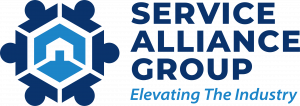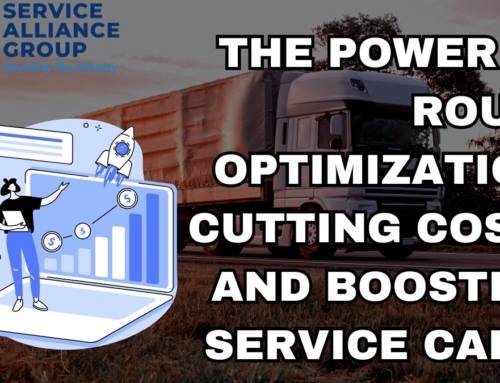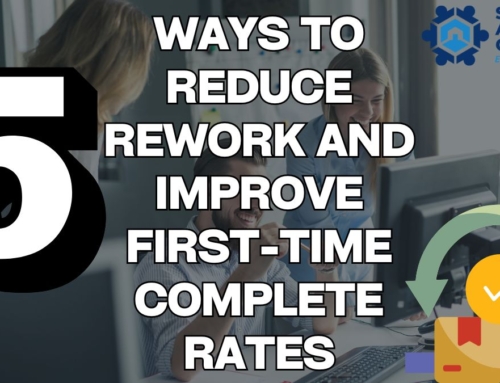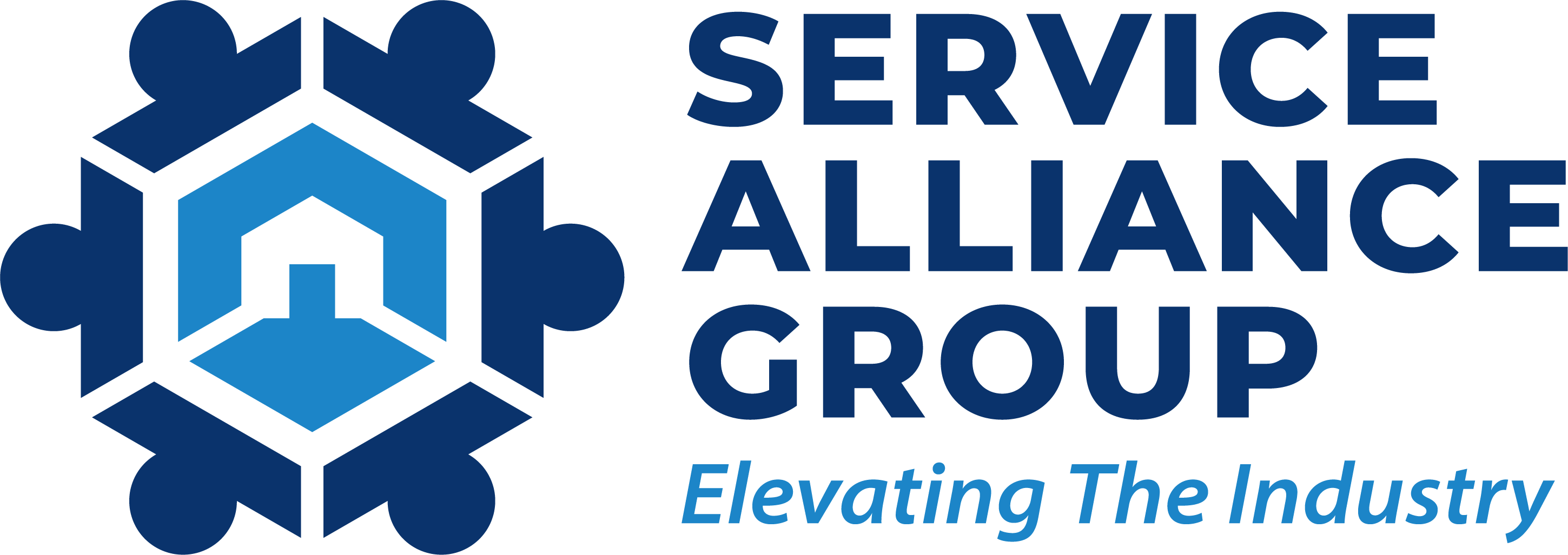Importance of Standard Operating Procedures (SOPs)
It is necessary to streamline your home service company consistently and efficiently if you want to have a profitable company. One way to achieve this is by implementing Standard Operating Procedures (SOPs).
SOPs provide clear guidelines for your team to follow, ensuring that tasks are carried out consistently and standardized. These guidelines can minimize errors and variations in your processes, improving quality control. This is especially important in appliance repair, HVAC, plumbing, and electrical industries, where attention to detail is paramount.
A SOP is an integral part of risk management. When you define the steps and precautions in various scenarios, you can minimize the likelihood of accidents, damage, or other incidents. This protects your employees and safeguards your customers’ homes and belongings.
SOPs facilitate training and knowledge transfer within your organization. New employees can quickly grasp the procedures and best practices, ensuring a smoother onboarding process. SOPs become valuable resources for your team members to refer to when they encounter challenges or need to refresh their memory on specific tasks.
Creating SOPs for Every Aspect of Your Home Service Business
Learn how to streamline your home service company by creating standard operating procedures (SOPs) for every aspect of your business. Establishing clear guidelines is key for the success and efficiency of your operations.
Step-by-Step Guidelines for Implementing SOPs in Your Home Service Company:
- Identify key processes: Start by identifying the key processes in your home service company that would benefit from standardization and documentation.
- Document procedures: Create detailed step-by-step instructions for each process, including clear guidelines, best practices, and safety protocols.
- Involve employees: Get input from your team members when creating SOPs to ensure the procedures are practical and easy to follow.
- Communicate procedures: Communicate the new SOPs to your team and provide training on implementing them effectively.
- Implement tracking technology: Use KPIs and reporting solutions to monitor your team’s performance and ensure compliance with SOPs.
- Regularly update SOPs: Review and update your SOPs regularly to adapt to industry changes, improve processes, and address any issues that may arise.
- Evaluate effectiveness: Assess the effectiveness of your SOPs through regular audits and employee feedback, making adjustments as needed for continuous improvement.
Following these step-by-step guidelines, you can successfully implement SOPs in your home service company to protect and streamline your operations for improved efficiency and success.
The Role of SOPs in Enhancing Consistency and Quality for Your Home Service Company
Consistency and quality are essential to running a successful home service company. Customers expect a high level of service, and any deviations can lead to dissatisfaction and negative reviews. This is where Standard Operating Procedures (SOPs) come into play. Home service companies can implement SOPs to ensure uniformity in service delivery. Whether it’s appliance repair, HVAC, plumbing, or electrical work, having SOPs helps streamline operations and maintain consistency across all jobs.
Companies can set benchmarks for their technicians by clearly defining the steps and standards of each task. SOPs provide guidelines that help technicians deliver high-quality service and maintain a professional image.
Incorporating SOPs for Regulatory Requirements
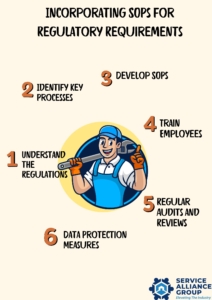
Incorporating SOPs for Regulatory Requirements
To streamline your home service company and ensure smooth and efficient operations, it is crucial to incorporate Standard Operating Procedures (SOPs) that adhere to specific compliance and regulatory standards. By following these steps, you can maintain industry quality, health, and safety standards, as well as protect your customer’s personal information:
- Understand the Regulations: Begin by thoroughly researching and understanding your home service industry’s compliance and regulatory requirements. This includes laws and regulations related to appliance repair, HVAC, plumbing, and electrical work within the state (or states) you do business.
- Identify Key Processes: Identify the key processes within your company that must adhere to regulatory requirements. This could include customer data handling, equipment maintenance, safety protocols, and service quality standards.
- Develop SOPs: Develop clear and concise Standard Operating Procedures (SOPs) for each identified process. These SOPs should outline the step-by-step instructions for carrying out tasks in compliance with the regulations.
- Train Employees: Ensure that all employees within your home service company are trained on the SOPs and understand the importance of adhering to regulatory requirements. Conduct regular training sessions to reinforce compliance and provide updates on any regulation changes.
- Regular Audits and Reviews: Implement a system of regular audits and reviews to assess compliance with regulatory requirements. This includes evaluating the effectiveness of the SOPs, identifying areas for improvement, and promptly addressing any non-compliance issues.
- Data Protection Measures: Implement robust data protection measures to safeguard customer information. These measures include secure storage systems, encrypted communication channels, and strict access controls.
SOPs ensure compliance with industry quality, health and safety standards, and data protection regulations for your home service company. This enhances your company’s reputation, builds customer trust, and leads to long-term success in the industry.
Using SOPs as a Tool for Employee Development
Employee training and onboarding are critical parts of employee development in any industry, including home services. Standard Operating Procedures (SOPs) can be valuable for streamlining these processes and ensuring consistent training practices.
These are the impacts of using SOPs as a tool for employee development:
- SOPs provide a clear framework for training new employees, reducing confusion and errors during onboarding.
- SOPs are a reference guide for continuous employee development, allowing employees to refresh their understanding of procedures.
- SOPs can be used for cross-training, enabling employees to take on additional responsibilities and expand their skill set.
- Home service companies can enhance employee training and expertise and foster a culture of continuous improvement by implementing SOPs.
How SOPs Facilitate Feedback and Adaptation
Continuous improvement plays a vital role in driving business excellence. They serve as a guide for employees, ensuring consistency and efficiency in their work. But beyond that, SOPs also facilitate feedback and adaptation.
With well-documented SOPs in place, home service companies can gather feedback from customers and employees. When employees follow SOPs, they can provide valuable insights on how to improve the process. This feedback can refine and adapt the SOPs to make operations smoother and more efficient.
SOPs enable home service companies to quickly adapt to changing industry or customer needs. As feedback is received and analyzed, business owners and managers can identify areas for improvement and implement necessary changes to enhance their services. This agile approach enables them to stay ahead of the competition and provide the best possible experience for their customers.
Implementing SOPs Practical Steps and Best Practices
Implementing SOPs requires describing the steps involved. This helps ensure everyone understands the process and can follow it consistently. Clear communication is key to successfully implementing SOPs.
Following best practices include regularly reviewing and updating SOPs to reflect any changes in your business processes. It is also important to provide proper training and support to your employees to ensure they understand and adhere to the SOPs.
Several key factors must be considered when implementing SOPs. One of them is identifying the areas where SOPs can benefit your home service company—appliance repair, HVAC, plumbing, or electrical services. Customizing the standard operating procedures (SOPs) according to your industry’s specific requirements is essential to achieve the best outcomes.
Overcoming Challenges: Addressing Common Obstacles in SOP Implementation
Achieving smooth and efficient operations requires addressing common obstacles in Standard Operating Procedure (SOP) implementation. You can overcome challenges such as inconsistent processes, limited visibility, training and onboarding issues, safety incidents, and lack of consistency by following specific steps and approaches.
- Analyze current procedures to identify inconsistencies and create standardized processes.
- Communicate new processes clearly to the team and provide proper training.
- Implement real-time tracking and reporting technology solutions for improved visibility.
- Utilize software or cloud-based platforms to capture data and monitor activities.
- Develop comprehensive training programs for addressing training and onboarding issues.
- Include a mix of classroom training, hands-on experience, and mentorship in the onboarding process.
- Regularly evaluate the effectiveness of training programs and make necessary adjustments.
- Prioritize safety training for all employees to prevent safety incidents.
- Conduct regular safety meetings, provide personal protective equipment, and establish clear safety protocols.
- Encourage an open reporting culture to promptly identify and address potential hazards.
- Utilize SOP management systems to centralize procedures for consistency.
- Ensure SOPs are easily accessible to all employees and regularly updated.
- Conduct periodic audits to promptly verify compliance with SOPs and address any deviations.
By implementing these strategies and approaches, you can effectively address the common obstacles in SOP implementation and streamline your home service company’s operations for improved efficiency and success.
Conclusion: The Power of SOPs to Protect and Streamline Your Home Service Company
You must streamline your home service company to protect and optimize its operations. By implementing standardized procedures and safety guidelines, you can ensure consistency in operations, minimize potential risks, and effectively achieve organizational goals. SOPs provide a framework for employees to follow, ensuring that tasks are completed efficiently and safely. Regularly updating and reviewing SOPs is essential for adapting to changes in the industry and continuously improving processes. The power of SOPs lies in their ability to streamline your home service company, protect employees and customers, and ultimately drive the success of your home service company.
